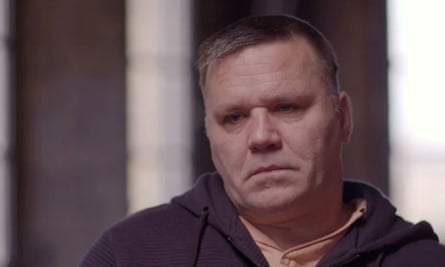Police face scrutiny after man found guilty of 2005 Emma Caldwell murder
A man has been found guilty of the 2005 murder of Emma Caldwell after a trial that raised significant questions about Police Scotland’s investigation of the unsolved murder and the key suspect over almost 20 years and its attitude to reports of violence against sex workers.
Iain Packer, 51, was found guilty of murder as well as 32 other charges against a total of 22 women that amounted to a horrifying course of unchecked physical and sexual violence over two decades. The offences included 11 rapes and multiple sexual assaults.
Caldwell was living in a hostel in Glasgow’s Govan district when she disappeared in April 2005, aged 27. Her naked body was found five weeks later in Limefield Woods near Biggar, South Lanarkshire.
Her mother told the trial that Caldwell had started taking heroin to numb her grief over the death of her older sister. She had been making money through sex work at the time of her death. The court heard from a friend of Caldwell’s that Packer had become “obsessed” with her, following her and attempting to scare away her other clients.
Although a rape allegation was first made against Packer in 1990, the prosecutor advocate depute, Richard Goddard KC, told the jury that at that time police were “dismissive” of reports made by sex workers. He said it was “a tragedy” that sex workers felt forced to accept sexual assault as “part and parcel of their job”.
Another witness said Packer chose girls who were “young, vulnerable and on drugs”. Many of the women who gave witness statements were sex workers at the time and some have since died.

Packer – who denied all charges apart from one of a prior indecent assault against Caldwell, for which he admitted he was “ashamed” – gave evidence at the trial over three days, insisting he had not killed Caldwell and that the other women accusing him were either mistaken or liars.
He admitted taking sex workers to the woods where Caldwell’s body was found – but not to the same spot where she was found.
Asked where he was on the night Caldwell disappeared, Packer told the court he could have been at work or walking his dogs.
The court had heard earlier from a forensic expert that soil found in his van was a 97% match for earth at the spot where Caldwell was dumped.
Summing up the defence, Ronnie Renucci KC told jurors last week: “If he is this person [who murdered Emma Caldwell], how on earth did he get away with it for all these years right under the noses of the police?”
Information about the police investigation that came to light during the trial raised significant questions about why it took so long to bring Packer to justice. He gave six statements to police between 2005 and 2007, but was not interviewed under caution as a suspect. A decade later, concerns about the unsolved case were such that in 2015 the lord advocate ordered Police Scotland to re-investigate not only who killed Caldwell, but flaws in the original inquiry.
In the years since her death, Caldwell’s case has been pursed doggedly by Scottish media. In 2015, the Sunday Mail exposed Packer, revealing that he admitted taking Caldwell to Limehouse Woods six times, but police did not pursue him.
Jim Wilson, who was then editor of the newspaper, said: “Police Scotland and the Crown Office must now be compelled to explain why Packer was not prosecuted 10 years before and why, after his exposure, the reopened inquiry took another nine years.
“Iain Packer will finally pay for his crimes but the police and prosecutors who allowed him to remain free for almost 20 years must now also be held to account.
“Police Scotland and the Crown Office had the evidence to convict Packer for almost two decades but did nothing because it was too professionally embarrassing to admit their mistakes and put them right.”
In 2019, the BBC journalist Sam Polling interviewed Packer for the Disclosure documentary series.
He said that, in March 2007, he had taken two police officers to the remote woodland where Caldwell’s body was found. Polling revealed that the detectives asked their superiors whether he could be charged, and the response was to let him go.
At the time, the police investigation was focused on four Turkish men, who were charged with Caldwell’s murder in August 2007, but that case collapsed and the men were released.